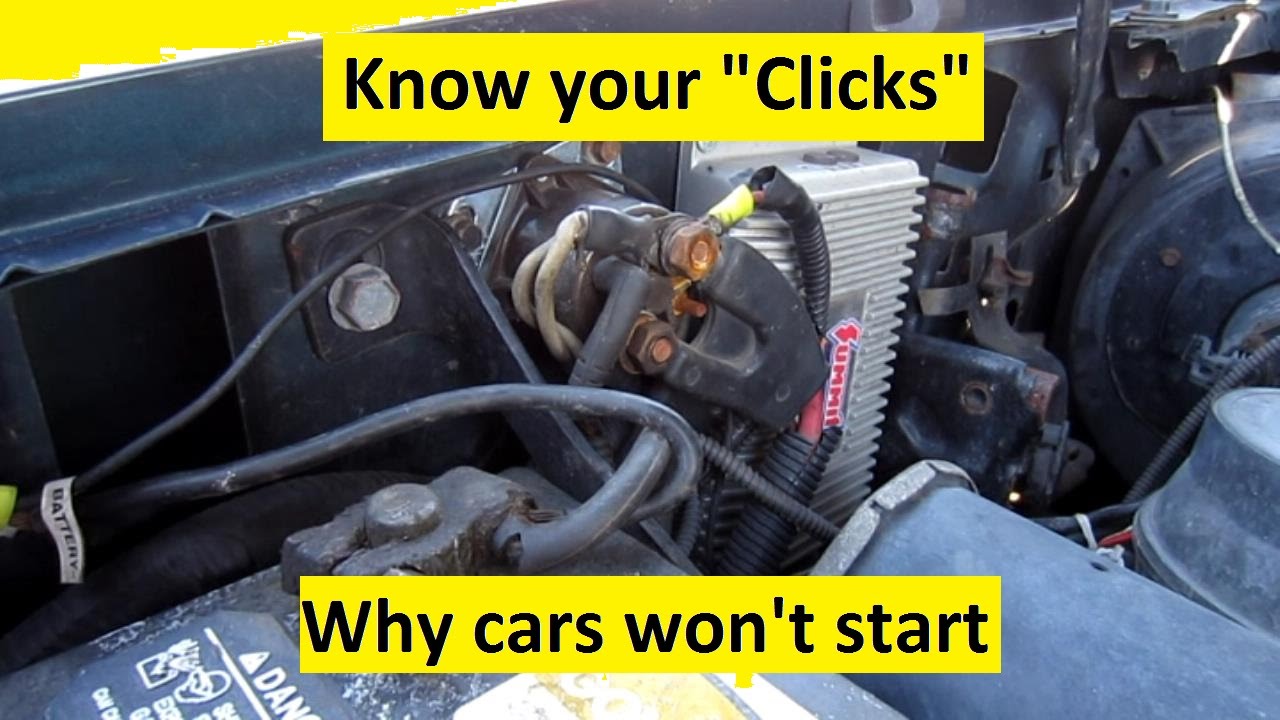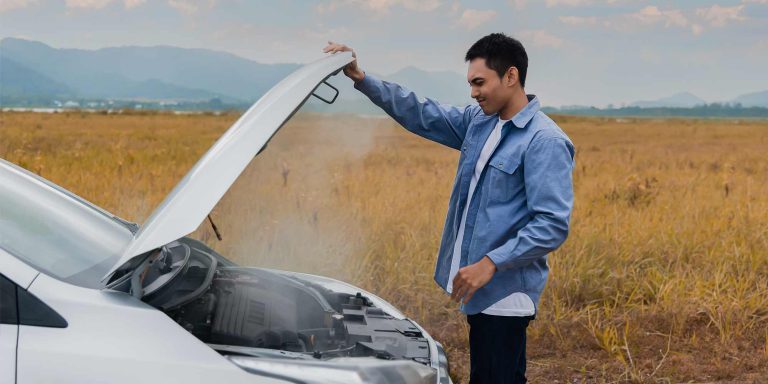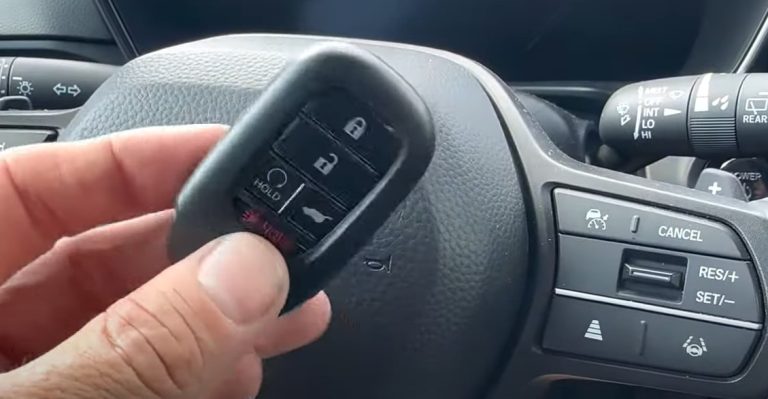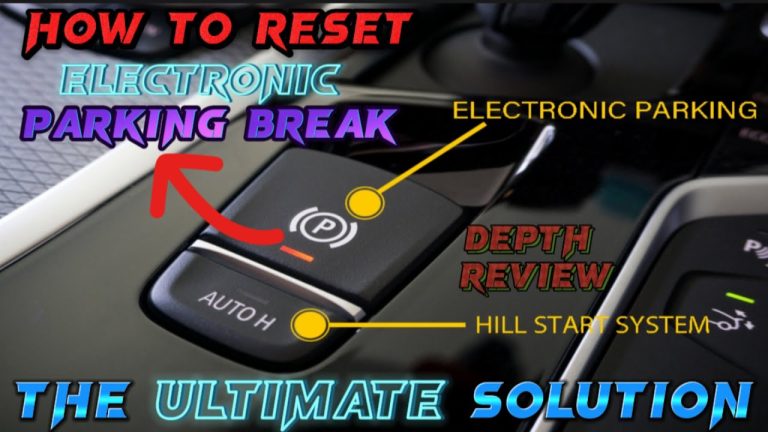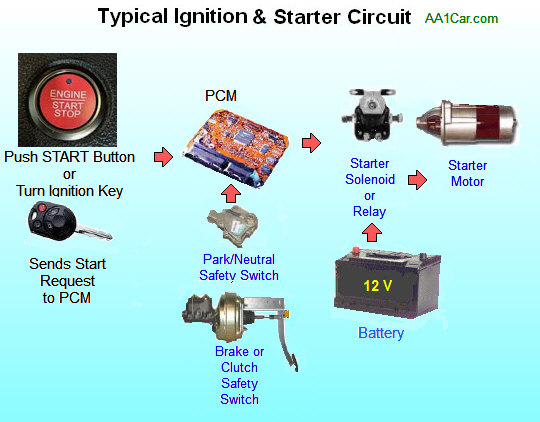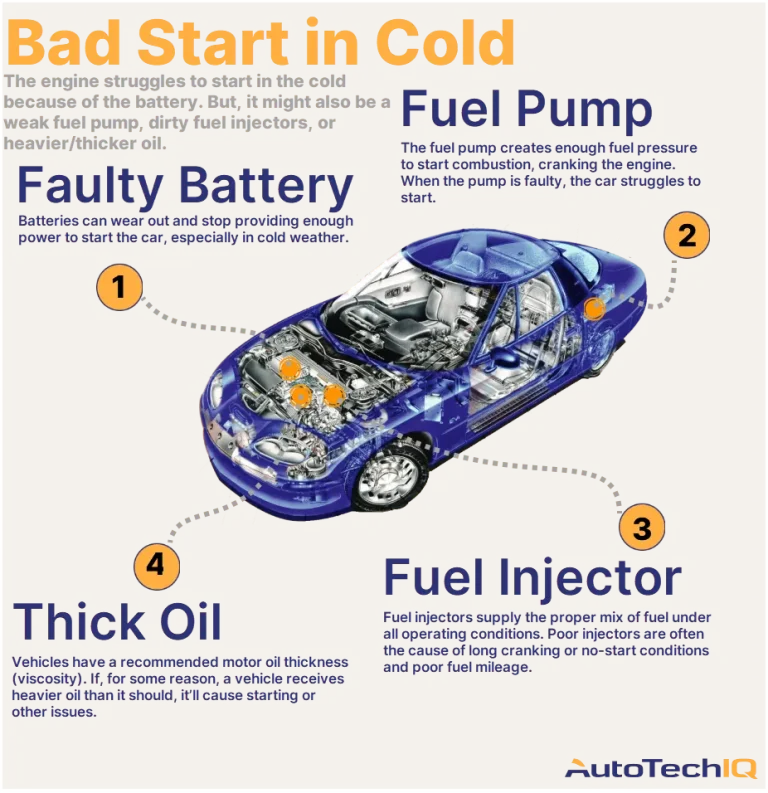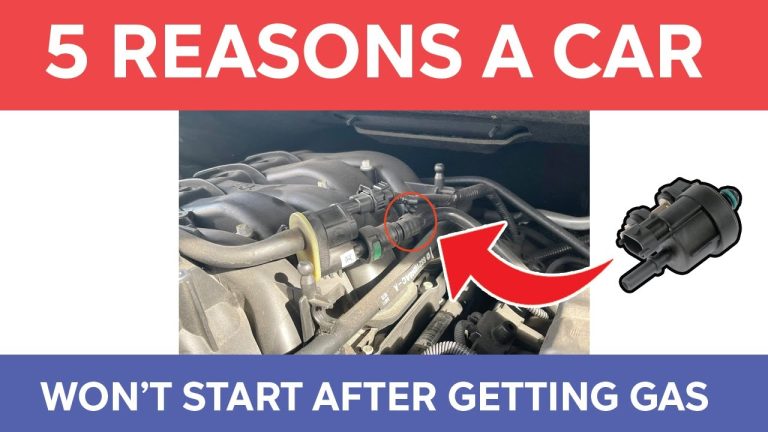Clicking Noise When I Try to Start Car: Troubleshooting Guide
A clicking noise when trying to start your car often indicates a weak or dead battery, poor battery connections, or a faulty starter motor. It can also result from a bad ignition switch or corroded terminals. Checking the battery voltage and connections is a good first step.
It’s frustrating, isn’t it? That clicking sound is not just annoying; it’s a signal that something isn’t right with your vehicle. Whether you’re rushing to work or planning a weekend getaway, a car that won’t start can throw a wrench in your plans.
But don’t worry—understanding what that clicking noise means could be the first step to solving the problem. You’ll discover the most common reasons behind that pesky sound, and learn how to address them without stress. Keep reading, and you’ll be back on the road in no time!
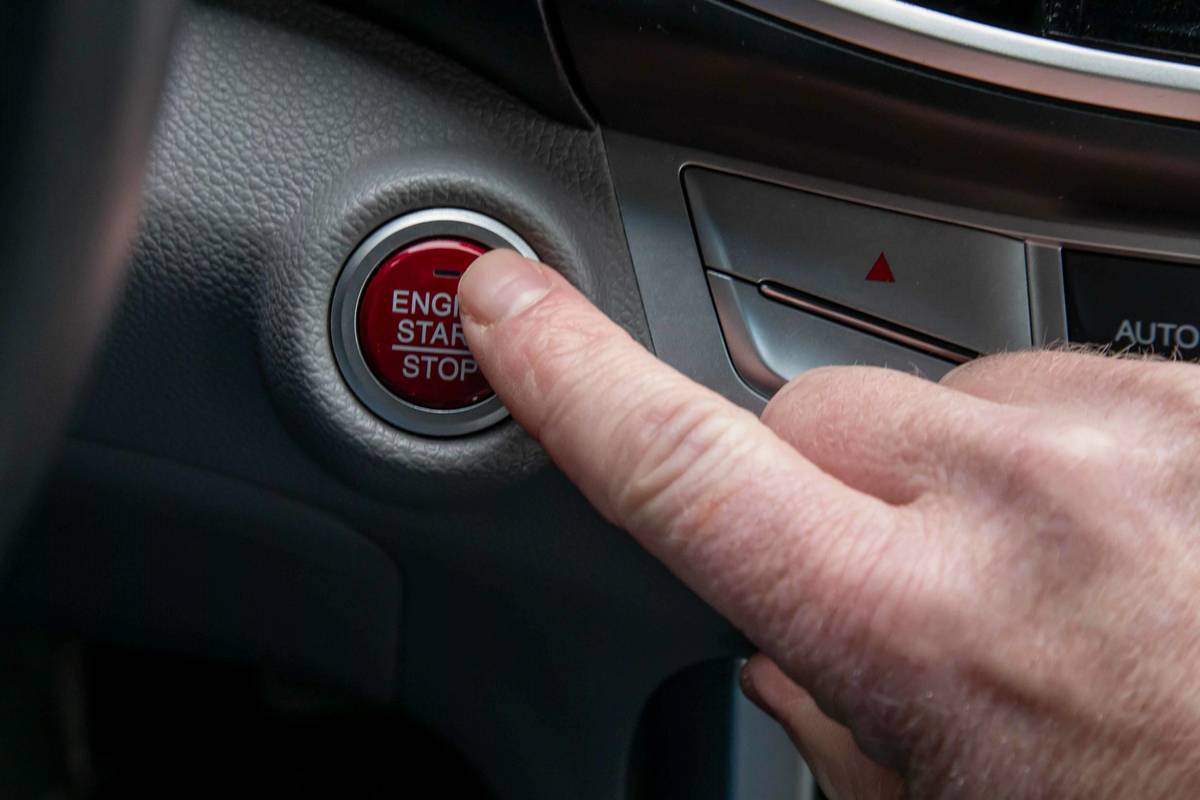
Credit: www.cars.com
Read more: Key Fob Unlocks But Won’t Start Car: Solutions Inside
Clicking Noise When I Try to Start Car
A clicking noise when you try to start your car usually means a dead battery, loose connection, or a faulty starter. Check the battery and cables first.
Common Causes
| Cause | Description | Solution |
|---|---|---|
| Dead Battery | Battery lacks power to start the engine. | Jump-start or replace the battery. |
| Loose or Corroded Connections | Poor electrical contact at battery terminals. | Clean and tighten battery terminals. |
| Faulty Starter Motor | Starter motor fails to engage or spin the engine. | Inspect and replace starter if needed. |
| Weak Alternator | Alternator isn’t charging the battery properly. | Test and replace the alternator. |
| Bad Ignition Switch | Ignition switch fails to send power to the starter. | Diagnose and replace switch if faulty. |
| Blown Fuse or Relay | Starting circuit fuse or relay is damaged. | Inspect and replace blown components. |
When you hear a clicking noise as you try to start your car, it’s a sign that something isn’t quite right. This sound can be both confusing and frustrating, especially when you’re in a hurry. Understanding the common causes can help you troubleshoot and potentially fix the issue on your own. By knowing what to look out for, you can save time and possibly avoid a trip to the mechanic. A weak or dead battery is often the main culprit. If your battery is old or has been drained by leaving lights on, it might not have enough power to start the car. Check the battery terminals for corrosion or loose connections. Make sure they’re clean and tight. Sometimes, jump-starting your car can confirm if the battery is the issue. The starter motor is responsible for cranking your engine. If you hear a clicking noise, the starter motor might be failing. Listen for a single click or a series of rapid clicks. A faulty starter motor often needs replacement, but sometimes the issue can be as simple as a loose connection.
Alternator Failure
The alternator charges the battery and powers your car’s electrical systems. If it fails, the battery won’t charge properly, leading to starting problems. Check if your dashboard battery light is on. If it is, it could indicate alternator trouble. Keep an eye on dimming headlights or electronic malfunctions as additional signs.
Faulty Ignition Switch
The ignition switch sends power to the starter motor. A worn-out switch may fail to send the necessary current, causing a clicking noise instead of starting your engine. Pay attention to any difficulty turning the key. A sluggish or stuck key can hint at ignition switch issues.
Bad Starter Solenoid
The starter solenoid acts as a bridge between the battery and the starter motor. If it’s not functioning correctly, your car won’t start. Listen for clicking sounds when you turn the key. A faulty solenoid might need replacing to resolve the issue.
Worn-out Wiring
Electrical wiring connects various components in your car. Over time, wires can become frayed or corroded, disrupting the flow of electricity. Inspect the wiring for visible damage. Consider whether recent repairs could have disturbed connections. Have you ever experienced a clicking noise when starting your car? Understanding these common causes can help you pinpoint the problem. By addressing the issue early, you can prevent more significant damage and get back on the road with confidence.

Credit: revolutionmotors.ca
Read more: Car Won’t Turn Over But Has Power: Troubleshooting Tips
Battery Issues
Hearing a clicking noise when starting your car often points to battery issues. This sound usually means insufficient power to start the engine, indicating a weak or dead battery. Checking the battery connections and charge can help identify and fix the problem quickly.
Experiencing a clicking noise when you try to start your car can be frustrating and worrisome. Often, this noise is a sign of battery issues. Your car’s battery is vital for starting the engine. When it struggles, it might produce a clicking sound. Understanding these battery problems can help you take action before you find yourself stranded.
Battery Age And Condition
Batteries don’t last forever. If your car’s battery is old, it may not hold a charge well. A battery typically lasts 3-5 years. Check the battery’s age and condition. If it’s nearing the end of its life, consider replacing it.
Corroded Battery Terminals
Corrosion on battery terminals can hinder performance. It can prevent the battery from sending power to the engine. Look for a white or blue powder on the terminals. Clean them with a mix of baking soda and water. Use a brush to scrub them gently.
Loose Or Damaged Connections
Loose or damaged connections can stop your battery from working efficiently. Ensure the cables are tightly connected to the terminals. If they are frayed, replace them. A good connection is crucial for your car to start smoothly.
Battery Charge Level
Is your battery adequately charged? A clicking noise often means the battery charge is too low. Check the charge with a voltmeter. If it’s under 12.4 volts, it might need recharging. An overnight charge might revive it.
Electrical Drain
Electrical drain can deplete your battery. Do you leave lights or electronics on when the car is off? Even minor drains can weaken the battery. Be mindful of what stays on in your car. Turn off devices to preserve battery life. Is your car’s battery the root cause of the clicking noise? By addressing these issues, you can potentially avoid costly repairs. Regular checks and maintenance can save you from future headaches. Have you checked your battery recently? It’s a simple step that could make all the difference.
Starter Motor Problems
Hearing a clicking noise when starting your car can be worrisome. One common cause is starter motor problems. The starter motor plays a crucial role in starting your car. If it fails, your engine won’t start, leaving you stranded. Understanding the signs of starter motor issues can help in timely repairs.
What Is A Starter Motor?
The starter motor is an electric device. It helps start your car’s engine. When you turn the key, the starter motor engages. It spins the engine to start the combustion process. Without a functioning starter motor, your car won’t start.
Common Symptoms Of A Faulty Starter Motor
Clicking sounds are a warning sign. These sounds occur when the starter motor fails. Sometimes, the engine may not turn over at all. You might also notice a grinding noise. This indicates the starter motor gear is worn out.
Reasons Behind Starter Motor Failure
Several factors can cause starter motor issues. Worn-out components are common culprits. Bad electrical connections can also affect performance. Over time, the motor itself can wear out. Regular maintenance can help prevent these issues.
Can You Fix A Starter Motor Problem Yourself?
Fixing a starter motor can be challenging. It often requires mechanical skills. If you’re not familiar with car repairs, seek professional help. Attempting repairs without knowledge can lead to more damage.
Preventing Starter Motor Problems
Regular car maintenance is key. Check your car’s electrical system often. Ensure all connections are tight and clean. Listen for unusual sounds when starting your car. Early detection can save you from costly repairs.
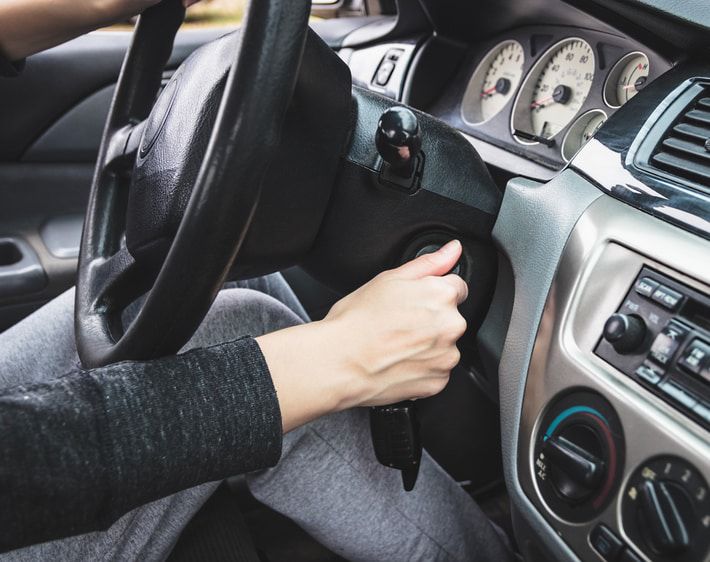
Credit: www.firestonecompleteautocare.com
Alternator Faults
Experiencing a clicking noise when starting your car can be frustrating. One common cause is alternator faults. The alternator plays a crucial role in your car’s electrical system. It charges the battery and powers electrical components while driving. If the alternator fails, the battery may not charge properly. This can lead to starting problems and clicking sounds.
What Does An Alternator Do?
The alternator converts mechanical energy to electrical energy. This energy keeps the battery charged. It also supports electrical systems like lights and radio. Without a working alternator, your car’s battery drains quickly.
Signs Of A Failing Alternator
Dim headlights often signal alternator issues. Flickering dashboard lights are another warning sign. Electrical components may work intermittently. A dead battery may indicate alternator problems too.
Why The Alternator Causes Clicking Noises
A weak battery can’t start the engine. This results in clicking noises. The alternator may not be charging the battery enough. This lack of power causes the starter to click instead of turning over the engine.
How To Diagnose Alternator Issues
Check the battery first. Ensure it’s fully charged. If problems persist, test the alternator. A multimeter can measure its output. A professional mechanic can also diagnose alternator faults.
Preventive Measures For Alternator Health
Regular maintenance keeps the alternator healthy. Check belts for wear and tear. Keep battery terminals clean. Replace the alternator if needed, to avoid future issues.
Diagnosing Electrical Connections
Experiencing a clicking noise when starting your car often points to electrical connection issues. This sound might indicate a weak battery or a faulty starter. Checking the battery terminals and connections can help identify the problem, ensuring your vehicle starts smoothly.
When you hear a clicking noise as you attempt to start your car, it can be frustrating and worrisome. One common culprit for this sound is a problem with the electrical connections. Diagnosing these connections is crucial to getting your car back on the road. Understanding and assessing electrical connections can save you from costly repairs or replacements. Let’s explore how you can tackle these issues effectively.
Inspecting Battery Connections
First, check the battery terminals. Ensure they are clean and tightly connected. A loose or corroded terminal can disrupt the flow of electricity, leading to the dreaded clicking sound. You might be surprised how often a simple cleaning or tightening can solve the problem. Use a wire brush to clean off any corrosion and make sure the connections are snug.
Checking The Starter Motor Connections
Next, examine the connections to the starter motor. A faulty connection here can prevent your car from starting. Inspect for any signs of wear or damage. Secure any loose wires and replace damaged ones. A friend once struggled with starting their car for weeks, only to discover a loose wire was the culprit. Sometimes, the smallest details make the biggest difference.
Testing The Alternator
The alternator plays a vital role in maintaining your car’s electrical system. Check its connections and test its output. If it’s not working properly, it might not charge the battery adequately, leading to starting issues. Consider using a multimeter to measure voltage output. This tool can provide invaluable insights into whether the alternator is functioning correctly.
Evaluating Fuses And Relays
Finally, don’t overlook the fuses and relays. A blown fuse or faulty relay can interrupt the power supply to your car’s starter system. Examine each fuse and relay for damage or wear. Replacing a faulty fuse is a quick fix that can resolve the problem. Have you checked these components recently? It might be worth a look.
Conclusion: Take Action Today
Diagnosing electrical connections can seem daunting, but breaking it down into these steps simplifies the process. By addressing each connection methodically, you increase your chances of identifying and fixing the issue. Remember, the goal is to ensure every component is working harmoniously. Take the time to check each connection, and you may find the solution to your car’s clicking noise.
Frequently Asked Questions
Why Does My Car Make A Clicking Noise When Starting?
A clicking sound often means a battery problem. It might be weak or dead.
Can A Starter Cause A Clicking Noise?
Yes. A faulty starter can cause a clicking noise. It may not engage properly.
How Can I Fix A Clicking Noise When Starting?
Check the battery first. Clean terminals. Ensure connections are tight. Replace if needed.
Is A Clicking Noise A Sign Of A Bad Alternator?
It can be. A failing alternator may not charge the battery properly, causing clicks.
Will Jump-starting Help With The Clicking Noise?
Yes. Jump-starting can temporarily solve the issue if the battery is weak or dead.
Conclusion
Solving the clicking noise in your car is important. Ignoring it might lead to bigger problems. Start by checking the battery and connections. Listen carefully to identify the source of the sound. Regular maintenance helps prevent these issues. A mechanic can provide expert advice if needed.
Remember, addressing problems early saves time and money. Keep your car in good condition for smooth rides. Stay aware and proactive with car care. Your vehicle will thank you for it. Enjoy peace of mind with a reliable car. Safe journeys ahead!

